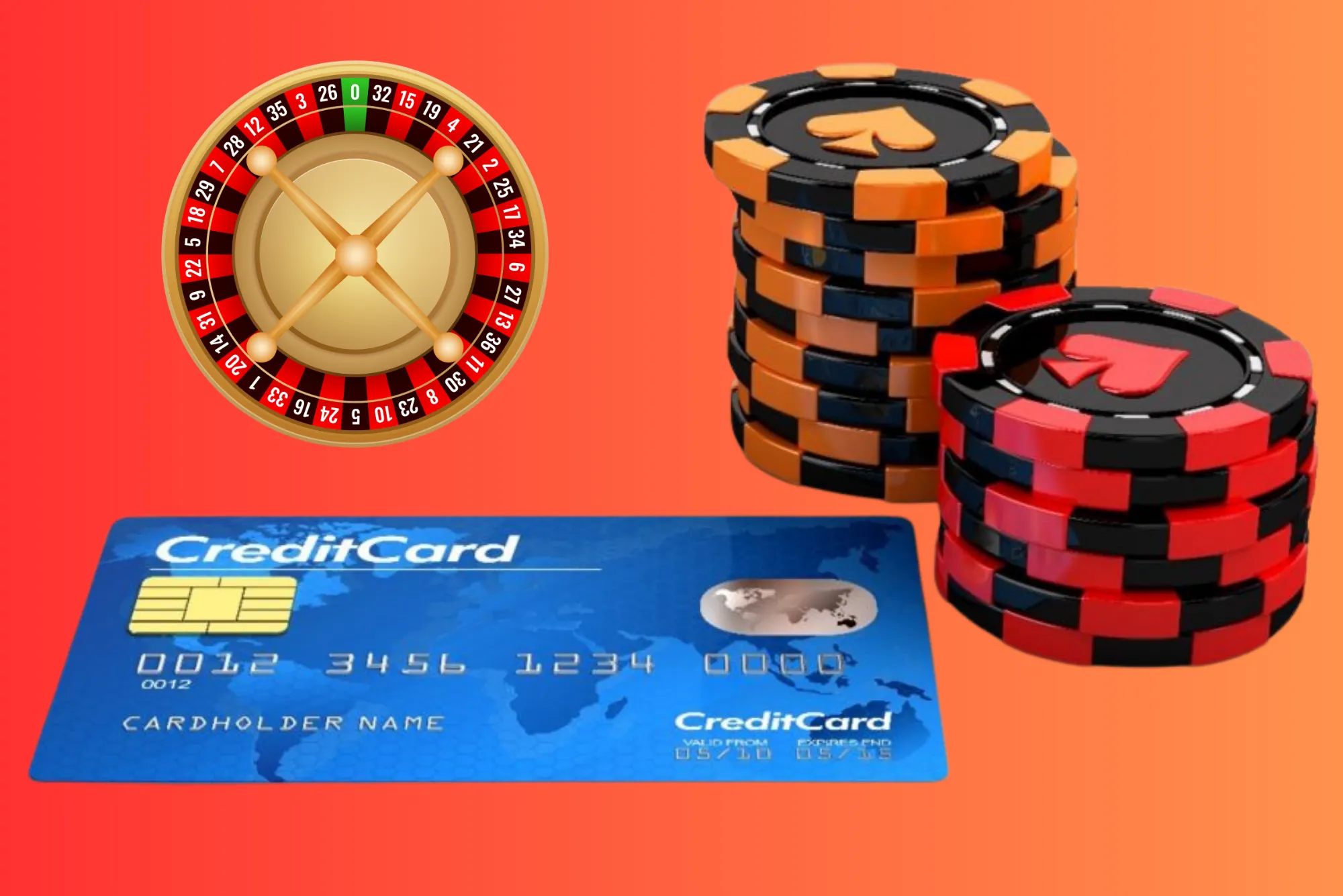For many casino-goers, the excitement of the game begins long before the first card is dealt or the first slot spins. It starts with the decision of how to fund your play. In an age where plastic and digital payments dominate, the question naturally arises: Is it legal to use credit cards in casinos?
The answer isn’t as simple as a yes or no. It depends on the country you’re in, the type of casino—whether online or land-based—and the rules set by both your card issuer and the gambling platform. As someone who has spent years researching gambling legislation and the online gaming industry, I can tell you that understanding these nuances can save you a lot of trouble (and money).
Let’s explore how credit card casinos work, where and when they’re legal, and what you should consider before swiping your card at the roulette table or logging into an online casino.
The Basics: What Are Credit Card Casinos?
Before diving into legality, it’s important to define what we mean by credit card casinos. In simple terms, these are casinos—either physical establishments or online platforms—that allow players to deposit funds and place bets using their credit cards.
This setup offers convenience. You don’t need to carry cash or wait for bank transfers; instead, you can instantly access your credit line and start playing. Popular card providers like Visa, MasterCard, and sometimes American Express are commonly accepted in such casinos.
However, not all casinos support credit cards. In fact, regulations in many regions have tightened, restricting or even banning this payment method for gambling transactions. The main concern? Credit card use in gambling can lead to irresponsible spending and debt accumulation.
Is It Legal to Use Credit Cards in Land-Based Casinos?
In most parts of the world, using a credit card directly at a casino table or slot machine is not allowed. Casinos are often cash-based environments, and even in modern, regulated venues, credit cards can usually only be used indirectly.
For example, you might be able to use your card to withdraw cash at the casino’s ATM or cashier cage, and then use that cash for gaming. This approach technically separates the “credit card payment” from the act of gambling itself.
In the United States, most states with legalized casinos follow this model. Players can use credit cards for cash advances, but these transactions often come with hefty fees and high interest rates. In the United Kingdom, however, the situation is stricter: since 2020, it’s illegal to use credit cards for any form of gambling, both online and offline. The UK Gambling Commission enforced this rule to protect consumers from problem gambling and financial harm.
So, while credit card casinos exist in various forms around the world, the legality of using a credit card depends entirely on jurisdiction. Always check your local laws and casino policies before attempting to use one.
Online Credit Card Casinos: Convenience Meets Regulation
Online gambling has exploded in popularity, and with it, the rise of credit card casinos—digital platforms that allow players to make deposits using their credit cards.
In countries where online gambling is legal and regulated, such as Canada, many European nations, and parts of the U.S., credit cards are still widely accepted. However, regulations can vary even between states or provinces. For instance, New Jersey allows credit card deposits in licensed online casinos, while other states may impose restrictions.
The key advantage of credit card casinos online is convenience. Deposits are instant, and most platforms integrate secure payment gateways with encryption to protect users’ financial data. Players can also set deposit limits, which helps manage spending more responsibly.
That said, many financial institutions classify gambling transactions as “cash advances,” meaning they attract higher interest rates and fees. Additionally, withdrawals back to a credit card are often not possible—players typically need to use bank transfers or e-wallets to collect winnings.
So while the convenience is tempting, it’s crucial to treat credit card deposits in casinos as carefully as you would any other loan.
Why Some Casinos Restrict or Ban Credit Cards
Casinos—especially online operators—are under increasing pressure from regulators to promote responsible gambling. One of the main reasons many have restricted or banned credit card payments is the risk of players gambling with borrowed money.
When you play with a credit card, you’re not using your own cash; you’re essentially taking a short-term loan to gamble. For players who don’t have strong financial discipline, this can quickly lead to debt accumulation and even gambling addiction.
Regulators in countries like the UK and Australia have taken proactive steps to reduce this risk by outlawing credit card transactions for gambling altogether. Even in regions where it remains legal, many casinos voluntarily restrict credit card use to maintain their licenses and reputation.
In contrast, some markets—such as parts of Asia and Africa—still allow credit card casinos with few restrictions. But these platforms often operate in gray areas of regulation, so it’s essential to verify their legitimacy before depositing funds.
The Risks of Using Credit Cards in Casinos
Let’s be honest: the allure of instant credit can be hard to resist, especially when you’re chasing a lucky streak. But using credit cards for gambling carries significant risks.
The first is financial. Since gambling outcomes are uncertain, using borrowed money means you’re gambling not only with your luck but with your future repayments. Many players find themselves caught in a cycle of debt when they use credit cards for gambling.
The second risk is psychological. Studies have shown that players who gamble with credit rather than cash tend to spend more and play longer. The lack of physical cash makes losses feel less tangible, which can lead to poor decision-making.
Finally, there’s a credit score impact to consider. Frequent gambling transactions or large cash advances can raise red flags with lenders, potentially lowering your credit rating or limiting future borrowing options.
While credit card casinos can be appealing for their convenience, it’s critical to approach them with awareness and responsibility.
Safer Alternatives to Credit Card Casinos
If you’re concerned about the risks but still want convenient deposit options, there are safer alternatives. Many players now prefer using debit cards, prepaid cards, or e-wallets like PayPal, Skrill, or Neteller. These methods limit spending to available funds and don’t accrue debt.
Cryptocurrency casinos have also gained traction, offering faster transactions and enhanced privacy. However, regulation in this area is still evolving, and players should ensure they’re using legitimate, licensed platforms.
The important takeaway is this: while credit card casinos remain an option in some jurisdictions, there are often smarter and safer ways to fund your gaming without risking financial hardship.
Practical Advice for Responsible Casino Credit Card Use
If you live in a region where credit card gambling is legal and you choose to use it, follow these best practices:
-
Set strict deposit limits and never exceed them.
-
Avoid using cash advances; they come with high fees and immediate interest.
-
Track your transactions carefully.
-
Never gamble with the expectation of repaying debt through winnings.
In my experience, the players who enjoy gambling most are those who treat it as entertainment, not an income source. Using a credit card responsibly means ensuring your gameplay remains fun—and that your finances stay healthy long after you leave the casino floor or log off an online site.
Final Thoughts: Understanding the Law Before You Play
So, is it legal to use credit cards in casinos? The short answer: sometimes. The longer answer depends on where you are, the type of casino, and the payment policies in place.
In regulated markets like the U.S., Canada, and parts of Europe, credit card casinos operate within clear legal frameworks, though they may come with restrictions. In other regions, the rules are looser but potentially riskier. Wherever you play, legality is only part of the equation—financial responsibility matters just as much.
Ultimately, the most informed gamblers are the safest ones. Whether you’re a casual player or a seasoned high roller, take the time to understand your local laws, read the fine print, and manage your spending wisely. The cards may be in your hand, but control should always remain in your wallet.









